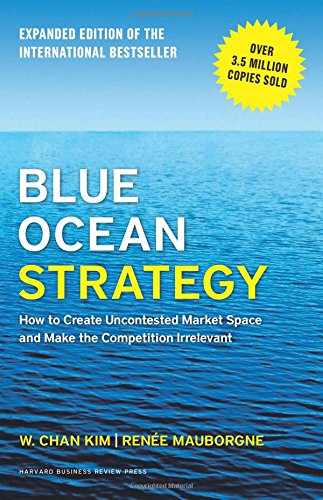After a while i’d like to come back with a book review following the last one The E-Myth Revisited; this time i want to suggest another milestone for anybody that want to develop his own start-up business: Blue Ocean Strategy by W. Chan Kim and Renée Mauborgne. The authors are two professors at INSEAD Business School and considered two of the most important influencers in business strategy.

The main theory they present in the book is that, to survive the market challenges, is better for a business to discover new competitor-free blue oceans rather then fight in the shark-infested (blood) red oceans. Again a obvious concept but very rarely pointed out by anybody… the power of simplicity!
The book shows how to systematically search for blue oceans or never discovered before markets, plenty of new opportunities and new products and services to sell. It gives tools and analytics frameworks to create new blue oceans and develop a strategy for winning in such new marketplaces without competition with others.
From sketching the strategic chart of the business sector to carrying out a blue ocean strategy the authors lead the reader to think out of the box in a very effective way, bringing also many cases of study from very different sectors and times.
I suggest reading this book before you start your venture so you can directly dive into a blue ocean!
Blue Ocean strategy on Amazon: https://www.amazon.co.uk/Blue-Ocean-Strategy-Uncontested-Competition/dp/1591396190/ref=sr_1_2?s=books&ie=UTF8&qid=1474967574&sr=1-2&keywords=blue+ocean+strategy
W. Chan Kim wiki: https://en.wikipedia.org/wiki/W._Chan_Kim
R. Mauborgne wiki (German): https://de.wikipedia.org/wiki/Renée_Mauborgne


